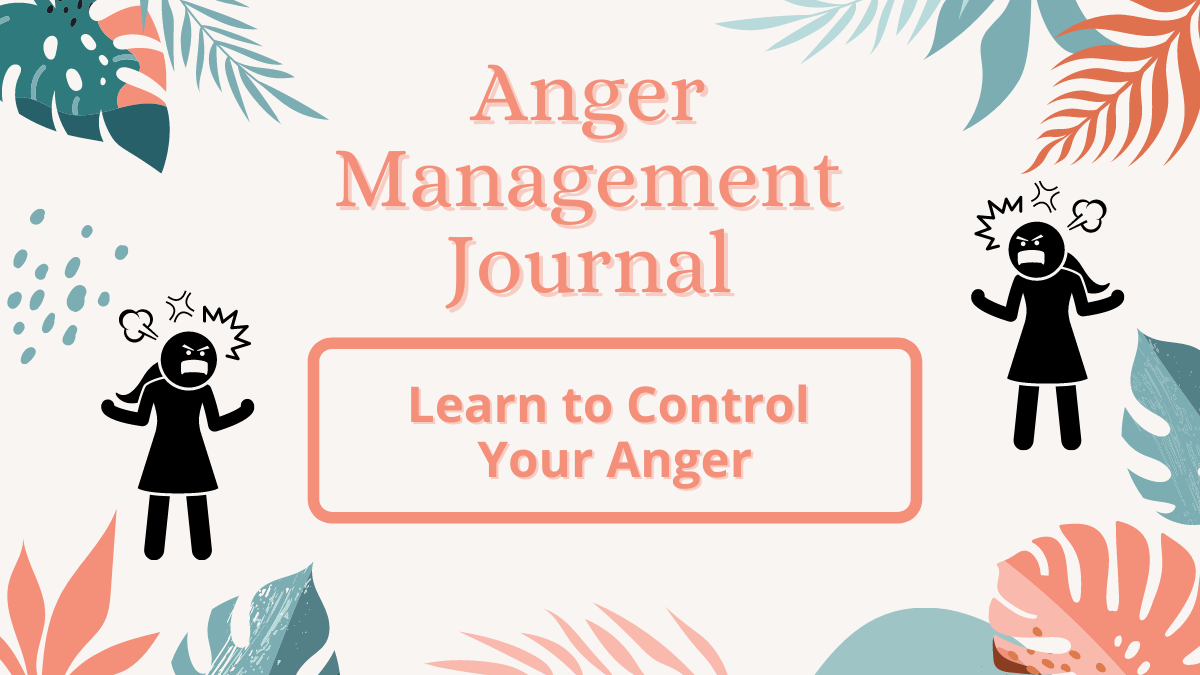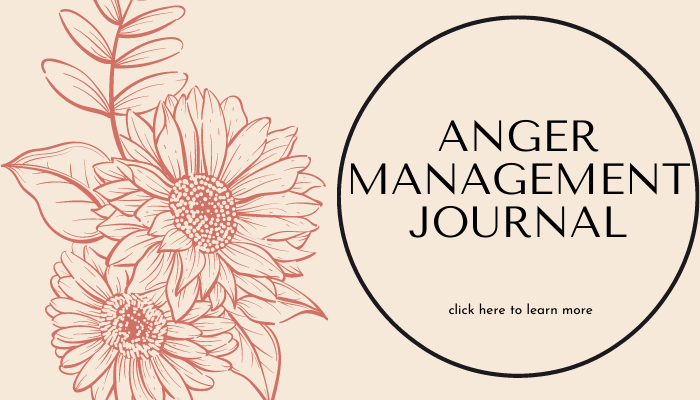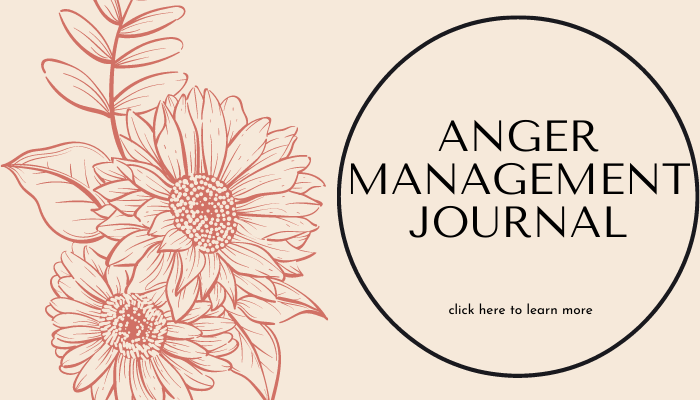Anger is a universal feeling that can arise in many situations. We experience anger when our expectations aren’t met, when we feel slighted, hurt, or frustrated, and even when we are fearful or stressed.
Research shows that habitual anger can harm a person’s health in several ways, in addition to damaging a person’s personal and professional relationships.
People who experience anger occasionally, briefly, and as an appropriate response to specific situations are typically not at risk for health concerns or long-term interpersonal complications.
However, anger that is sustained, intense, and/or frequently experienced can be problematic for individuals at many levels.
In these cases, it’s advisable to learn how an anger management journal can help you control your anger.
What Exactly Is Anger and How Can It Be Harmful?
Anger is a common human emotion related to the fight-or-flight mechanism. Anger can be beneficial in physiological ways as it increases blood flow to important systems in the body as a response to perceived danger or threat.
Even brief feelings of anger due to anxiety or stress can be beneficial, as it often helps us take action or make changes.
Unfortunately, anger can become more than just a temporary emotion or mood; in some cases, it can develop into a core aspect of an individual’s personality.
Being angry by nature can create untenable situations and relationships while simultaneously impairing a person’s health, sense of wellness, and worldview.
Such toxic and uncontrolled anger can affect an individual’s blood pressure and heart rate, which can lead to heart disease.
Chronic or habitual anger is linked to many conditions that negatively impact a person’s quality of life. Some of these conditions include:
- Depression
- Migraine headaches
- Anxiety
- Insomnia
- Fatigue
- Substance abuse and/or addictive behaviors
- Low self-esteem
- Obesity
- Stroke
- Compromised immune system
- Unhealthy relationships
- Higher risk of abusing others (physically and/or emotionally)
Thankfully, there are ways to get anger under control in order to avoid such detrimental effects to a person’s health, relationships, and professional life.
Anger and Control
In some instances of uncertainty, helplessness, or even vulnerability, reacting in anger can provide you with a sense of control.
Anger is a powerful feeling that can give us the illusion of being in charge of a situation over which we know we have no agency, such as the loss of a job, relationship, etc. Unfortunately, this results in two complications:
- A “sense” of control is not the same as the actuality of control.
- Reacting in anger shifts your emotional focus so that any latent feelings go unaddressed and unresolved.
In other words, anger creates an illusion that you are in control of yourself, your feelings, and your circumstances. In addition, since the feelings at the root of your anger are pushed aside, they are likely to resurface and begin the entire cycle again.
Therefore, it’s much more productive and beneficial to learn to control your anger rather than participate in the illusion that it gives you control or that it solves anything.
Most of us don’t stop during the day to examine our emotions as we have them. In general, we are too busy to take much time to reflect on our experiences and the way we react to them in the moment.
This can create built-up feelings of stress and anger at the end of the day or before sleep when, rather than feeling a sense of calm and peace, we re-live the day’s events in our minds and re-experience our emotional reactions.
If anger is one of these emotional reactions being re-experienced, this creates a negative physical, emotional, and psychological impact on our well-being which is detrimental to our health in both the short and long term.
Instead of feeling angry and out of control at the end of the day over what has already happened or trying to suppress related emotions through distracting and/or potentially unhealthy behaviors, keeping an anger management journal is an effective solution for expressing your anger, learning to manage it, and understanding how to control it.
What Is an Anger Management Journal?
An anger management journal is a tool that people can use to get their anger under control.
This type of journal is beneficial for anyone who is struggling with temporary anger issues due to stressful life events such as moving, changing careers, or loss of a loved one.
However, an anger management journal is especially effective in helping people with and interrupting the cycle of chronic anger.
This includes individuals who feel sustained, frequent, and/or uncontrollable episodes of anger that may potentially result in harm to their physical, emotional, and mental health.
Often, when we are angry, we experience a type of brain “fog” during which our intellectual functioning is actually impaired.
Writing in an anger management journal allows the brain to focus its thoughts through mindful and directed expression.
Even just “reporting” what caused your anger or how it made you feel can restore a sense of intellectual and emotional control.
At the same time, simply writing about angry feelings and who or what caused them isn’t enough to bring about a sense of resolution and long-term control.
To make that kind of progress, an anger management journal should have structure and focus beyond filling up blank pages with descriptions of slights, hurts, and frustrations.
There isn’t one “right” way to create an anger management journal. However, there are three important components for optimal effectiveness and eventual peace of mind:
Acknowledgement
Self-compassion
Mindful/thoughtful action
Acknowledgement
Until a person acknowledges that there is a problem, there is no chance of discovering a healthy solution. This doesn’t mean that your entry in your anger management journal has to read like a confession of something that you’ve done wrong.
Instead, it’s helpful to acknowledge two things: 1) the circumstances in which you felt angry (including who or what was involved, when or where it happened, how or why your anger was triggered); and 2) a description of your anger in terms of an emotional reaction (use of profanity, physical response, yelling, etc.).
It may be difficult to remember details of the circumstances and your ensuing emotional reaction, especially if you are writing in your anger management journal at the end of the day.
However, the more information you can provide and details you can acknowledge, the better perspective you will gain about what transpired and how you responded.
With this acknowledgement, you are validating yourself, and with this perspective, you are allowing yourself to see the situation and your anger with greater clarity.
Acknowledgement and resulting perspective develop into learning and growth.
Self-Compassion
It may surprise people who don’t struggle with habitual anger just how hard those that do are on themselves.
Many people who feel angry in their natural state often turn those angry feelings onto themselves, creating a debilitating and exhausting cycle of anger and regret.
That’s why reflecting self-compassion in your anger management journal is an important component.
Once you have acknowledged your anger, it’s essential to indicate compassion for yourself. This doesn’t mean that you wipe the slate clean or dismiss any negative consequences as a result of your anger.
Instead, self-compassion is a journal technique that allows you to interrupt the cycle of anger and regret. As part of your journal entry, you can indicate that all humans get angry and make mistakes, and that you are working towards managing your feelings and getting control of your anger.
This is a process, and journaling to yourself such reminders will open your mind up to receiving and giving compassion and forgiveness more readily and easily.
What is often misunderstood about compassion and forgiveness is that it lifts as much a burden from the giver as it does the receiver.
That’s partly why there are so many memorable sayings about letting go of grudges and anger itself.
When we practice self-compassion and self-forgiveness, it improves our ability to show compassion and forgiveness to others and thereby lightens our emotional burden.
Mindful/Thoughtful Action
Just as acknowledging a problem is an initial step to managing and controlling your anger, journaling about mindful/thoughtful action will bring a sense of resolution and allow you to move forward.
This doesn’t mean that you need to come up with a way to change or repair the outcome of your anger, although that may be an occasional approach.
Instead, creating an entry that reflects mindful/thoughtful action should include an alternate coping strategy than anger.
For example, you can look at your acknowledgement and self-compassion and write down the reaction you wish you may have had instead, or an idea of how to remind your future self to pause and breathe before letting anger overcome you.
If you realize that you have made progress in managing your anger, this is an opportunity to indicate to yourself a noticed improvement in choosing mindful and thoughtful actions rather than angry reactions.
Even reflecting on taking the time to create an entry in your anger management journal is a mindful/thoughtful action.
Overall, this part of the journaling process will give you a sense of closure or resolution that will make putting the situation and angry response behind you.
If those feelings return or you feel stuck in remembering and re-living specific circumstances that caused you to feel anger, you can look back at this part of your entry and remind yourself to move forward in your actions rather than circle back and interrupt your progress.
How Can an Anger Management Journal Help You Control Your Anger?
Just as standing in a garage doesn’t turn you into a car, “having” an anger management journal will not help you control or improve anything.
Using this journal is what gives you the opportunity to acknowledge what you are experiencing, unburden yourself through expression, and learn strategies to disrupt the cycle of anger and move forward in a healthier manner.
Using an anger management journal can help you control your anger by providing an intellectual and rational rather than emotional perspective. It is a chance for you to control how you respond to yourself by acknowledging the problem, practicing self-compassion, and considering more mindful and thoughtful action for the future.
This intellectual, non-judgmental, forgiving, and progressive approach will provide insight for you in terms of who you are, who you have the power to be, and how far you have come on your journey.
Not only will the journal process be rewarding, but as your sense of control over your anger strengthens, you will be rewarded by feeling better physically, mentally, and emotionally.
Committing to keeping an anger management journal is committing to your health and well-being. It may be difficult to recognize the physical toll that your anger is taking on the systems in your body until something drastic happens such as a heart attack or stroke.
In addition, being immersed in anger takes a toll on your personal and professional relationships, which can dramatically affect your emotional wellness through rejection and/or isolation.
Perhaps more importantly, frequent, persistent, and intense anger changes and becomes toxic to a person’s view of the world.
This reduces trust, compassion, and openness towards other people. Instead, people in a natural state of anger have a heightened sense that the world is an adversarial, unforgiving, and suspicious place to be.
Anger robs an individual of their peace of mind, healthy intimacy with others, personal and professional stability, and even the number of years they have to live.
An anger management journal won’t prevent you from feeling angry ever again, nor will it give you full control over this very common and natural human emotion.
However, proper and dedicated use of this type of journal will provide you with the chance to manage your anger in healthier ways and control it so that it isn’t an oppressive and detrimental part of your life.
It’s important to note that if you feel your anger is putting your health and well-being, or someone else’s, at risk, you should seek professional help immediately.




